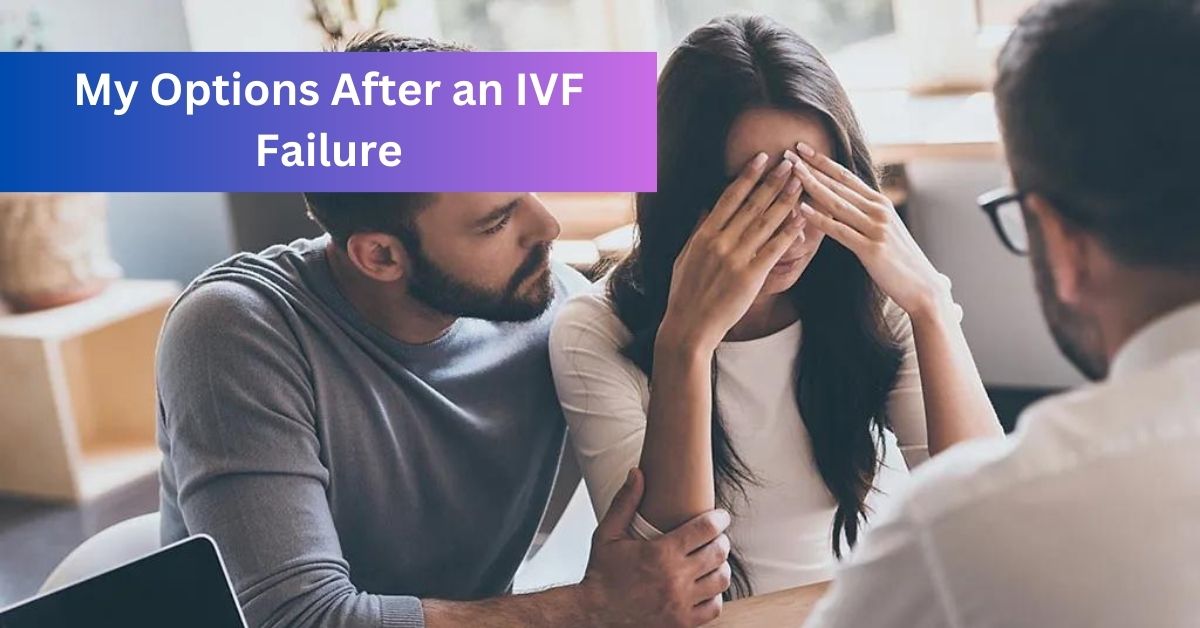My Options After an IVF Failure
In vitro fertilization (IVF) may be a viable option for couples hoping to conceive, but not every IVF cycle is successful. After an IVF failure, options are available to help you move forward. Here are a few steps you can take after an IVF failure:
Seek Support and Coping Strategies
After an IVF failure, it can help to seek mental health support, such as counseling or therapy. Mental health professionals can help you sort through your emotions, develop coping strategies, and motivate you to take positive steps. Investigate support groups that specialize in helping couples deal with the aftermath of unsuccessful fertility treatments.
Evaluate the IVF Process and Results
Whatever the outcome of your IVF cycle, it helps to understand what happened during treatment, the level of care you received, and the quality of your eggs and sperm. You can achieve this by having a frank conversation with your fertility specialist. They can talk to you about your egg and sperm quality, the number of embryos transferred, and any issues that may have arisen during the treatment. Based on the results, adjusting your care plan or considering a subsequent round of IVF can be necessary.
Explore Alternative Fertility Treatments
There are alternative fertility treatments available, such as intrauterine insemination (IUI), egg donation, surrogacy, or gestational carriers. Explore other advanced reproductive technologies, including egg freezing or preimplantation genetic testing. These reproductive technologies could improve your chances of succeeding in future attempts. Your fertility specialist can talk to you about the options available and what may be the best course of action.
Reflect on the Decision To Pursue Parenthood
After experiencing IVF failure, you can consider taking a step back and reflecting on the decision to pursue parenthood. Consider whether you’re willing to continue trying to conceive or are open to alternative paths to parenthood. You can decide to try IVF again or shift your focus towards other family planning options.
If you decide to try IVF again, it can help to reconsider your approach. You can adjust medication protocols or seek a second opinion from a fertility specialist. Whatever your decision, taking a moment to reflect can help clear the mind and bring clarity during a difficult time.
Navigate Financial and Practical Considerations
IVF can be an expensive and time-consuming financial process. After experiencing IVF failure, you need to assess whether you are ready and able to take on the costs and emotional toll of another round of IVF. Consider exploring alternative options that are more cost-effective or are covered by insurance. Evaluate the practical aspects of scheduling time off for treatment and arranging for childcare, if necessary.
Focus on Self-care and Well-being
After experiencing IVF failure, focus on your self-care and well-being. Engage in activities that bring joy and reduce stress, such as exercising, spending time outdoors, or engaging in yoga or meditation. Consider seeking counseling or joining a support group to process your experiences and emotions.
Consult With Fertility Specialists for Guidance
If couples are unsure of their next steps after IVF failure, they can consult with fertility specialists for guidance. Specialists can offer insight and advice for additional avenues of fertility treatment or alternative paths to parenthood. They can also provide emotional support and resources to help couples navigate this challenging time.
Seek Professional Help After an IVF Failure
After IVF failure, there are plenty of options moving forward. There are many resources and communities available to support you and your spouse in your journey. A reproductive specialist can evaluate your failed results and help you find an alternative treatment plan that addresses your individual challenges. Seek help from a professional fertility specialist today.




